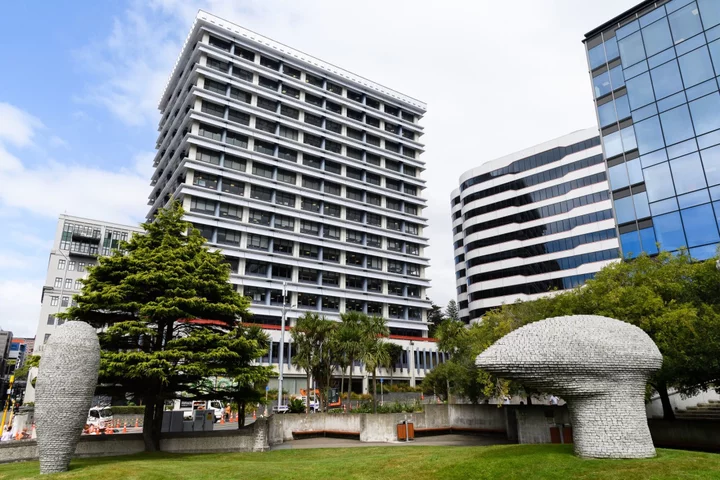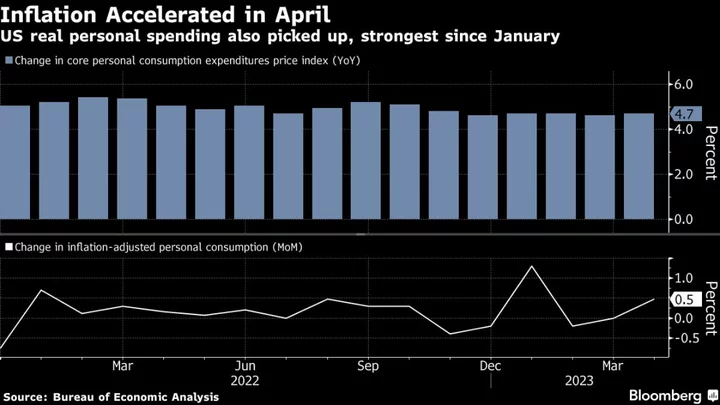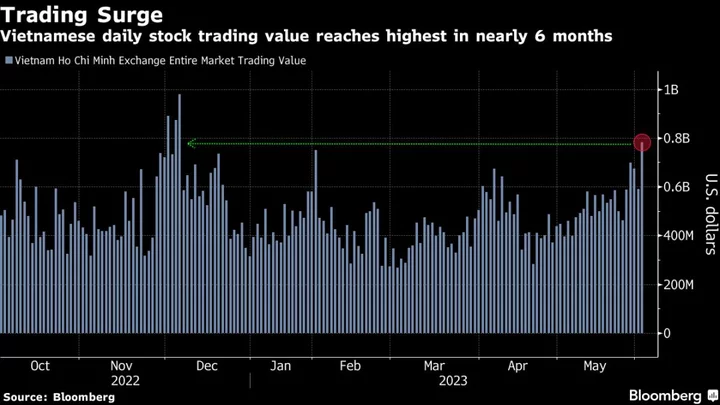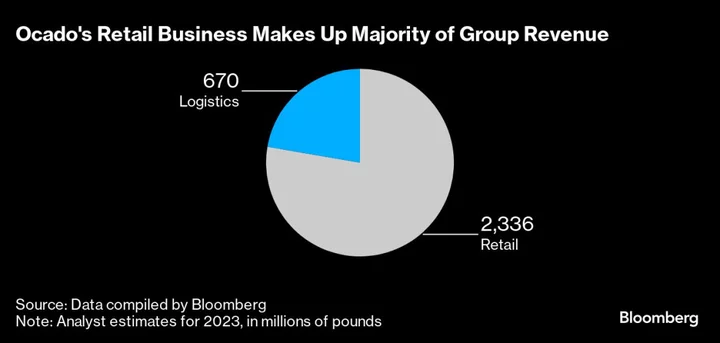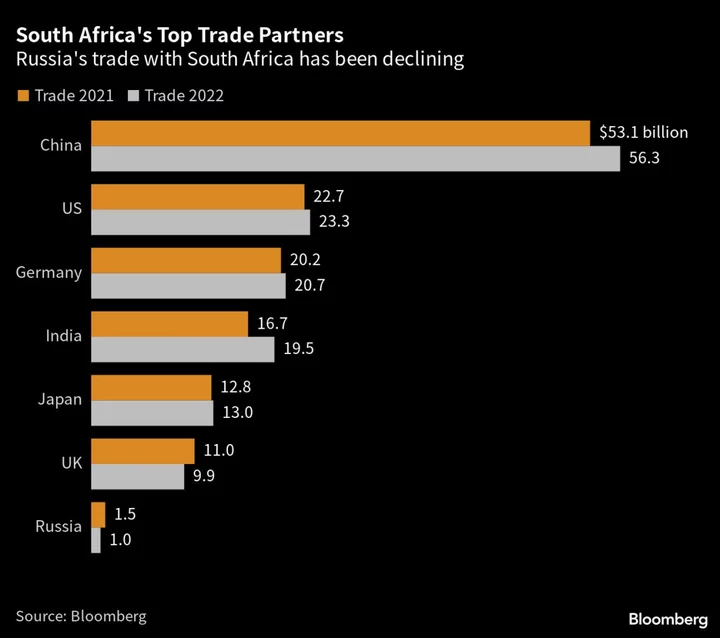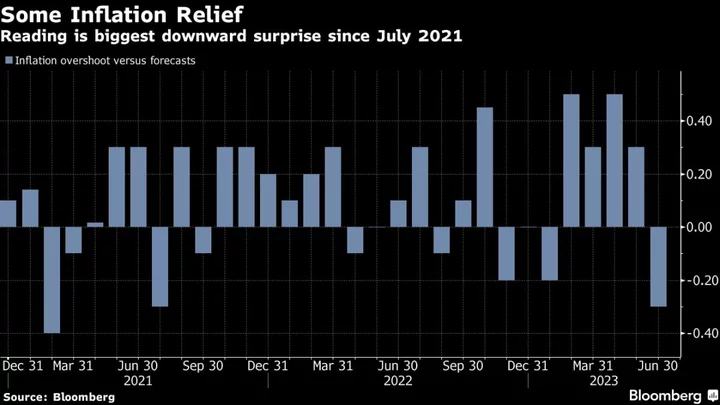New Zealand’s central bank said interest rates may need to stay high for a longer to return inflation to target, but disappointed traders looking for signs of imminent further tightening. The local dollar fell.
“Interest rates may need to remain at a restrictive level for a more sustained period of time,” the Reserve Bank said Wednesday in Wellington after holding the Official Cash Rate steady at 5.5%. However, current policy settings “are constraining economic activity and reducing inflationary pressure as required,” it said.
The RBNZ’s comment that risks to the inflation outlook are little changed from the previous meeting in August indicate a lower chance that it will raise rates in November, economists said. While the bank noted that inflation is “too high,” it still expects it to decline to within the 1-3% target band by the second half of 2024.
“Not communicating any further concern on the inflation outlook means the hurdle for a November tightening remains high,” said Kelly Eckhold, chief economist at Westpac in Auckland. “We continue to see a 25 basis-point rate hike in November at this stage, but this must be a lower probability than previously thought.”
The New Zealand dollar fell to a three-week low after the announcement. It bought 58.84 US cents at 3:43 p.m. in Wellington, down from 59.22 cents beforehand.
The RBNZ’s decision was an interim review rather than a quarterly Monetary Policy Statement, so the bank didn’t issue new forecasts and there was no press conference with Governor Adrian Orr.
At its last policy decision in August, the RBNZ raised its forecast track for the cash rate, implying a small chance of an increase over the following 12 months. It also pushed rate cuts out from next year into 2025.
Looming Election
Since then, data showed the economy grew more strongly than expected in the second quarter while rising oil prices and a housing market recovery pose upside inflation risks.
“The RBNZ did acknowledge a firmer near-term backdrop but balanced this by emphasizing that monetary settings were already restrictive, financial conditions had tightened,” said Mark Smith, senior economist at ASB Bank in Auckland. “With an election looming, the RBNZ also wisely kept a low profile.”
New Zealand holds a general election in 10 days, with polls showing that the ruling Labour Party is likely to be ousted from office.
The main opposition National Party has promised income tax cuts and policies that could stoke housing demand.
At their next meeting in November, the last of the year, policymakers will have fresh inflation and employment data as well as clarity about the make up of the new government.
The RBNZ today reiterated that spending needs to remain subdued to better match the economy’s ability to supply goods and services, which will help to curb price pressures.
Inflation eased to 6% in the second quarter. Economists expect it will persist at about that pace in the third quarter as gasoline prices surge, but forecast it will slow toward the RBNZ’s target in 2024. The next inflation report is due on Oct. 17.
“Inflation remains too high,” the RBNZ said. “The recent rise in global oil prices could increase domestic costs over coming months, risking headline inflation being higher than expected.”
Annual wage inflation slowed in the second quarter while the jobless rate increased, indicating the labor market is starting to slacken as more foreign workers enter the country. Third-quarter jobs data is released on Nov. 1.
New Zealand’s economy expanded more than twice as much as economists expected in the second quarter, while a revision to the previous quarter showed the nation hadn’t been in recession.
“While GDP growth in the June quarter was stronger than anticipated, the growth outlook remains subdued,” the RBNZ said. “With monetary conditions remaining restrictive, spending growth is expected to decline further.”
(Updates with economists’ comments)

